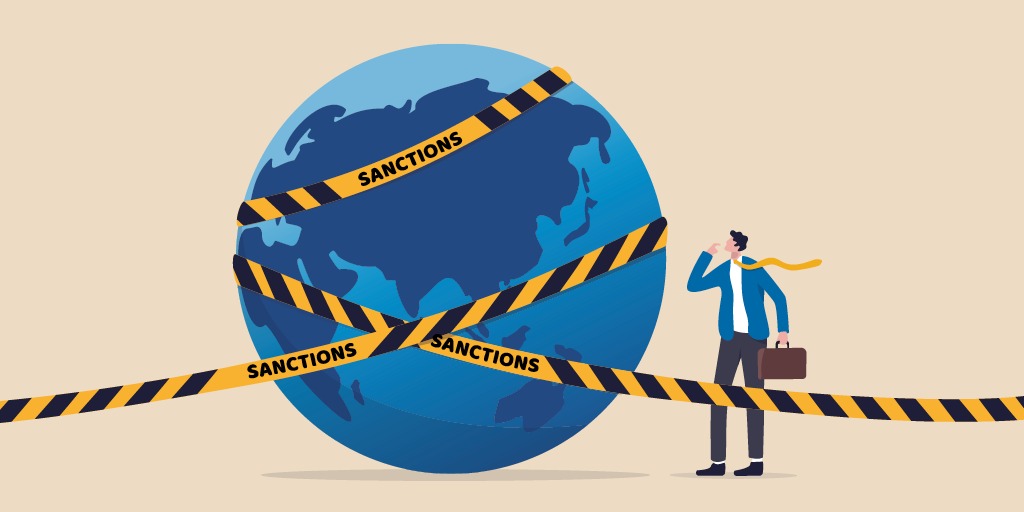The dream of global trade promises vast new markets and growth, but it comes with a complex web of legal and political risks. Among the most significant are export sanctions, which are legal restrictions on trade with specific countries, individuals, or entities. For any business, especially one in a thriving export hub like India, a failure to comply with these rules can lead to severe penalties, including crippling fines and legal action. Navigating this landscape requires careful planning and a robust approach to due diligence.
India’s Sanctions Framework: An Overview
While global trade often involves the U.S. dollar, Indian exporters must primarily follow their own country’s legal and institutional framework for sanctions. This system is a blend of international commitments and domestic regulations.
- UN Sanctions: India is legally bound to enforce sanctions passed by the UN Security Council under the United Nations Act, 1947. These are internationally mandated and must be implemented by Indian authorities and businesses.
- RBI Circulars: The Reserve Bank of India (RBI) issues specific circulars and notifications to all Indian banks, directing them to block transactions and freeze accounts of entities or individuals on designated sanction lists.
- DGFT and Customs: The Director General of Foreign Trade (DGFT) can restrict or ban the export of certain goods to specific countries. Customs authorities are responsible for enforcing these restrictions at the border.
- Enforcement Directorate (ED): This agency investigates violations of foreign exchange laws under the Foreign Exchange Management Act (FEMA) and money laundering under the Prevention of Money Laundering Act (PMLA).
While Indian companies may not directly fall under U.S. laws like OFAC, any transaction involving U.S. dollars or a U.S. bank could trigger OFAC’s jurisdiction, adding another layer of risk.
Types of Sanctions & Restrictions for Indian Exporters
India’s sanctions framework can be understood through different categories of restrictions:
- UN-Mandated Sanctions: These are comprehensive and binding on all Indian entities. For example, India has sanctions against North Korea and certain entities linked to the Taliban, which Indian businesses must adhere to.
- Country-Specific Restrictions: The DGFT can impose restrictions on trade with specific nations. For instance, the government has previously implemented restrictions on certain goods traded with Pakistan.
- Entity-Level Bans: India, in line with UN Security Council designations, publishes lists of specific individuals or organizations with whom trade and financial transactions are prohibited. Indian banks and businesses are required to screen their partners against these lists.
Due Diligence Against Risk
For any Indian exporter, due diligence is a critical safeguard. The core of this process is denied party screening, which involves checking all parties in a transaction against official government watchlists. This must be a mandatory step for every transaction, every time.
Your due diligence checklist should include screening the following parties:
- The Buyer/Importer: The primary counterparty, who must be checked against UN and RBI lists.
- The End-User: This is a crucial check under DGFT export norms. The ultimate recipient of your goods may be different from the buyer and must not be on any denied party list.
- Intermediaries: Any third-party logistics provider, freight forwarder, or customs broker involved in the shipment must also be screened.
- Financial Institutions: Indian banks are required to freeze funds if counterparties appear on UN/RBI lists, so a check on your payment channel is vital.
Red Flags for Indian Exporters
Beyond formal screening, be vigilant for red flags, which require a deeper investigation:
- Unusual Routing: A customer in a non-sanctioned country requests that goods be routed through a third country (like Dubai or Sri Lanka) to reach a sanctioned nation like Iran.
- Vague Information: The buyer is secretive about the final destination or end-user of your product.
- Unusual Payment Methods: The payment comes from a third-party country with no clear connection to the transaction.
Consequences of Non-Compliance in India
The penalties for violating sanctions are severe and can include:
- Seizure of Goods: Customs authorities can seize your goods at the border.
- Fines: Significant penalties can be levied under FEMA and PMLA.
- Suspension of IEC: The Importer Exporter Code (IEC), which is mandatory for all exporters in India, can be suspended or revoked by the DGFT.
- Freezing of Bank Accounts: Your bank accounts may be frozen if they are linked to sanctioned entities.
Proactive Strategies and Safer Alternatives
The best strategy is not to find a workaround for sanctions but to prioritize ethical and compliant business practices.
- Seek Legal Counsel: Do not attempt to interpret complex export licensing requirements on your own. Consult with DGFT-licensed consultants or legal firms specializing in sanctions.
- Embrace Anti-Bribery Compliance: Be aware of anti-bribery laws. Many high-risk countries for sanctions also pose a high risk of corruption.
- Use RBI-Compliant Payment Platforms: To avoid high-risk payment channels and ensure compliance, use a platform that integrates regulatory checks automatically.
In an increasingly interconnected world, a commitment to due diligence and ethical conduct is the most effective way for any Indian exporter to protect their business and ensure long-term, sustainable success.
Simplifying Your Global Payments
Navigating the complexities of international trade is tough enough without the added stress of slow payments and hidden fees. Many exporters and freelancers in India face challenges with traditional banking, which can involve a maze of regulations, high transaction costs, and opaque exchange rates. These issues can directly impact your cash flow and, ultimately, your business’s profitability.This is where a modern fintech solution like BRISKPE comes in. It is designed to simplify the entire cross-border payment process for Indian exporters, freelancers, and small businesses.
Here’s how our charges work. A payment up to $2,000 is $16 per transaction. A payment between $2,000 and $10,000 is $25 per transaction. A payment above $10,000 is 0.25% per transaction. For monthly payments that exceed $50,000 or for enterprise clients, custom pricing is available when you speak to us. By providing a streamlined, efficient platform, BRISKPE helps you get paid faster, with lower fees and complete transparency.





